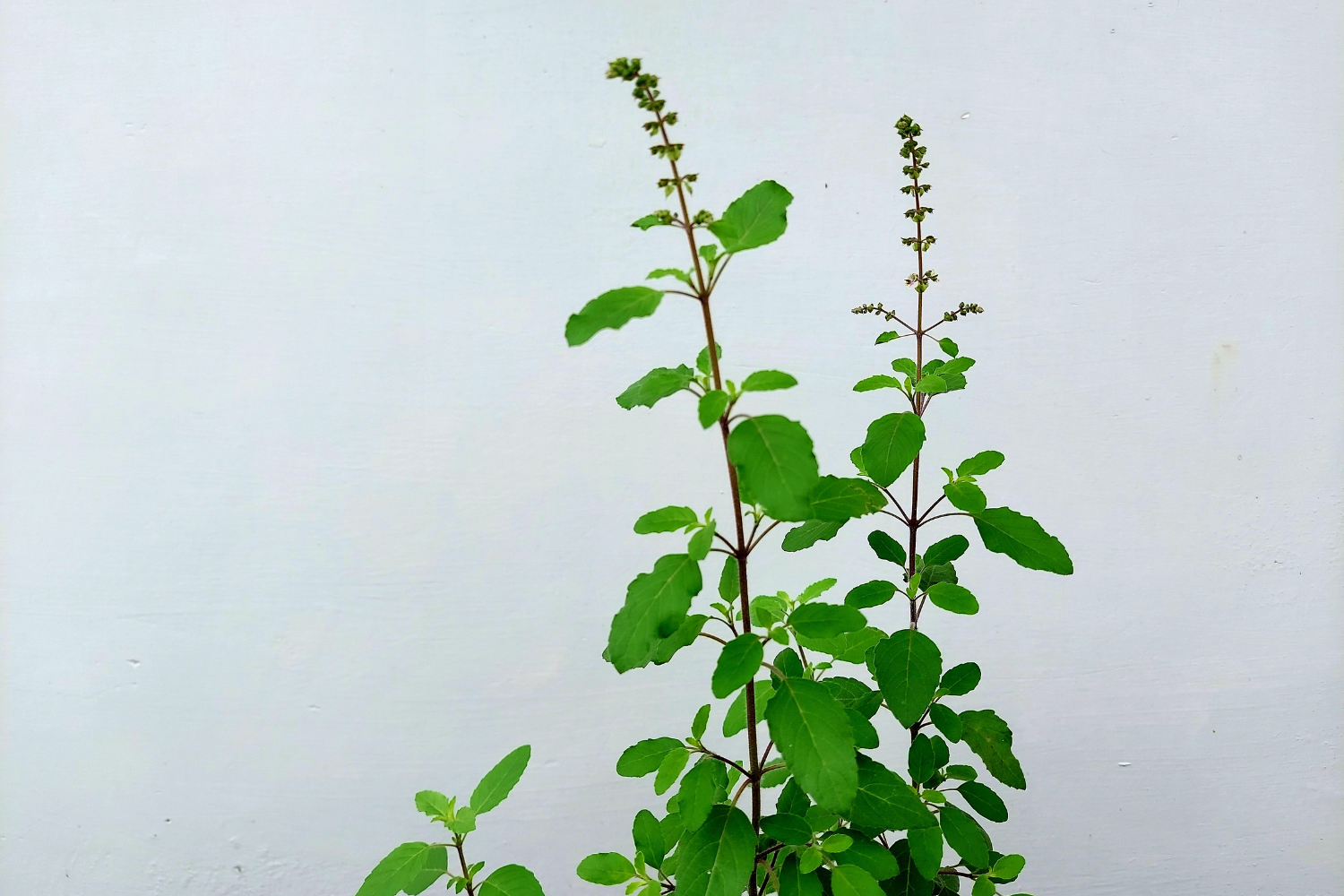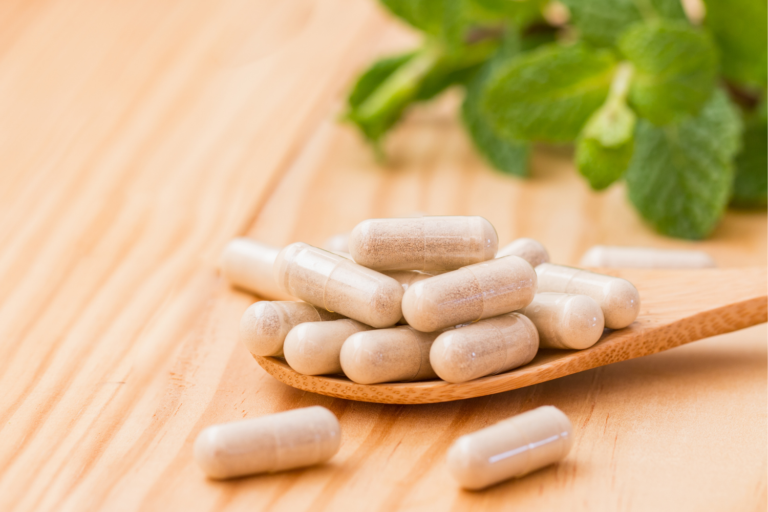Adaptogens in supplements have gained significant traction in the health and wellness industry, especially among brands focused on improving stress relief, energy levels, and overall well-being. These plant-based compounds, known for helping the body cope with physical and mental stress, are increasingly included in herbal supplements targeting everything from chronic stress and fatigue to improved physical and mental performance.
As the demand for evidence-based efficacy in herbal medicine grows, businesses are exploring adaptogenic herbs like ashwagandha root, rhodiola rosea, and panax ginseng to meet consumer needs. This guide explores how adaptogens work, their biological activities, the molecular mechanisms related to the body’s stress response, and their therapeutic potential in supplement formulations designed for modern lifestyles.
What Are Adaptogens?
Adaptogens are plant-derived substances traditionally believed to support the body’s ability to respond to physical, mental, and environmental stress. They support the body’s stress response system, especially the hypothalamic-pituitary-adrenal (HPA) axis, which controls how the body reacts to chronic stress and helps regulate stress hormone levels like cortisol. These plant adaptogens promote balance in the nervous system and assist in managing physical fatigue and mental stress.
Used for centuries in herbal medicine traditions such as Ayurveda and Traditional Chinese Medicine, adaptogens were valued for improving the body’s ability to stay energized and focused during stressful situations. Today, they are widely included in adaptogen supplements due to their potential to enhance overall well-being and resilience.

The Science Behind Adaptogens
Adaptogens are believed to influence the body’s stress response through mechanisms that may involve hormonal and immune system pathways, though more research is needed. They support adrenal health and help balance cortisol levels, which can reduce fatigue and improve energy. Adaptogens are traditionally used to support focus, clarity, and immune health, though individual results may vary.
Studies, including placebo-controlled studies and randomized double-blind trials, suggest that certain adaptogens have measurable effects on mental performance and physical activity. Although more comprehensive review data is still developing, current research shows promising therapeutic potential and biological activities in managing stress and enhancing the body’s ability to recover from physical and mental fatigue.

Popular Adaptogens & Their Benefits
Adaptogenic herbs come in many forms, each with unique benefits supporting stress relief, physical endurance, and energy enhancement. These herbal supplements are commonly used to improve the body’s ability to handle stress, recover from physical activity, and support overall health.
Ashwagandha – Stress Relief, Hormone Balance, and Endurance
Ashwagandha root is one of the most well-known adaptogenic herbs, often used to reduce stress and support hormonal balance. It has been studied for its potential to influence cortisol levels in certain individuals, improve sleep patterns, and increase physical endurance. Ashwagandha is often used in traditional practices for relaxation and post-exercise recovery.
Rhodiola Rosea – Mental Clarity, Fatigue Reduction, and Mood Support
Rhodiola rosea is commonly used to fight mental fatigue and improve mood. It supports the nervous system and helps enhance focus during periods of mental stress. This herb may also improve physical performance and reduce fatigue after physical exertion.
Holy Basil (Tulsi) – Immune Support, Anti-Inflammatory Properties, and Relaxation
Holy basil, also called tulsi, is an adaptogenic herb known for its immune system benefits and anti-inflammatory effects. It may help the body cope with emotional and physical stress, support normal cortisol levels, and promote relaxation without causing drowsiness.
Ginseng (Panax & Siberian) – Energy Boosting, Cognitive Function, and Stamina
Panax ginseng and its cousin, Siberian ginseng (eleuthero), are both popular adaptogens in supplements for boosting energy and supporting cognitive performance. These adaptogens may support physical stamina and exercise performance, based on traditional use and preliminary research. Asian ginseng is especially noted for enhancing mental performance and the body’s stress response.
Cordyceps – Athletic Performance, Endurance, and Respiratory Support
Cordyceps are fungi with adaptogenic properties that may support oxygen use and energy production during exercise. Athletes often use them to improve physical endurance and respiratory health while also helping reduce fatigue during high-intensity activity.
Reishi Mushroom – Immune Health, Stress Reduction, and Sleep Support
Reishi is traditionally used in herbal practices to support relaxation, immune health, and sleep habits. Its calming effects make it helpful in managing long-term stress and supporting overall well-being without disrupting daily energy levels.
Maca Root – Hormone Balance, Libido, and Energy Enhancement
Maca root is a plant adaptogen often used to balance hormones, enhance energy, and support sexual health. It may help improve stamina and mood, especially in stressful situations or during periods of hormonal change.
Eleuthero (Siberian Ginseng) – Physical Endurance, Stress Adaptation, and Immunity
Eleuthero, also known as Siberian ginseng, supports physical endurance and helps the body adapt to stress. It may help improve the immune response, reduce fatigue, and support recovery after physical activity. This adaptogen is especially useful in helping the body cope with demanding environments.

Why Are Adaptogens Trending in Supplements?
Adaptogen supplements are becoming more common in today’s wellness market as more people look for simple ways to manage stress, boost energy, and improve mental clarity. These herbal supplements offer a natural approach to supporting the body’s ability to handle stress and improve overall well-being. Several key trends in consumer behavior and health priorities drive the rise of adaptogens in supplements.
Growing Interest in Natural Stress Management
More people are seeking ways to reduce stress without relying on synthetic products. As daily life becomes more demanding, the need to manage both physical and mental stress continues to grow. Adaptogens support the body’s stress response and may help lower stress hormone levels like cortisol. These natural solutions are now favored for their potential to improve energy levels and mental performance during stressful situations.
Popularity of Functional & Herbal Medicine
The use of herbal medicine and functional ingredients is growing, with many consumers turning to traditional practices for health support. Adaptogenic herbs like ashwagandha, holy basil, and American ginseng are known for their long history in systems such as Ayurveda and Traditional Chinese Medicine. Plant adaptogens are recognized for their evidence-based efficacy and biological activities, making them a top choice for natural health products.
Performance & Mental Health Benefits
Athletes, busy professionals, and wellness-focused consumers are drawn to adaptogens for their potential to enhance physical endurance, reduce fatigue, and improve mental clarity. These supplements may help support muscle recovery after physical activity and promote cognitive performance during long periods of mental stress. Their role in balancing the nervous system also makes them appealing to those dealing with anxiety and mental fatigue.
Inclusion in Popular Wellness Trends
Adaptogens are now included in wellness products like nootropics, superfoods, and energy blends. These blends are often designed to support physical and mental performance, immune system health, and stress relief. As adaptogens continue appearing in new product formats—from powders to capsules—they are becoming a staple in health and wellness routines across many demographics.

How to Choose a High-Quality Adaptogen Supplement
Choosing the right adaptogen supplement is vital for ensuring safety and effectiveness. Not all products are created the same, and certain adaptogens may perform better depending on how they’re sourced, processed, and combined. Before adding adaptogens to your supplement line or wellness routine, here are a few things to consider.
Sourcing & Purity
High-quality adaptogen supplements should use ingredients that are organic, non-GMO, and ethically sourced. Clean sourcing reduces the risk of harmful additives and supports the product’s non-toxic profile. Businesses should also verify that plant materials are grown in environments free from contaminants, especially when working with herbal supplements intended for stress relief and immune support.
Extraction Methods
Adaptogens can be processed as whole-plant powders or standardized extracts. Standardized extracts provide consistent levels of bioactive compounds, which may help maintain uniformity in supplement potency. Understanding the difference helps identify products with consistent potency and clear therapeutic potential backed by a systematic review or placebo-controlled study.
Synergistic Formulations
Some supplement formulas combine multiple adaptogens to enhance benefits. For example, mixing rhodiola rosea with Panax ginseng can help reduce fatigue while supporting cognitive performance and physical endurance. These synergistic blends target several aspects of stress, from physical fatigue to mental clarity, and may provide broader support for the body’s stress response.
Third-Party Testing & Certifications
Reliable adaptogen supplements often carry certifications and third-party test results that verify safety, potency, and ingredient accuracy. These tests confirm active compound levels and screen for contaminants, though consumers should consult a healthcare provider about possible medication interactions. Certifications from organizations recognized by the Food and Drug Administration or other regulatory bodies add another level of trust.
How to Use Adaptogens for Maximum Benefits
Using adaptogens correctly can help improve their effects on energy, stress relief, and mental performance. The key is knowing the correct dose and timing and how to combine them with other supplements for specific goals.
Best Dosages for Different Goals – Stress Relief, Energy, Focus, Immunity
Adaptogens are most effective when taken in normal doses based on the user’s health goals and body type. While dosing can vary depending on the adaptogen and formulation, research supports specific amounts for targeted results.
Recommended Dosages by Goal:
- Stress relief:
- Ashwagandha root extract (300–600 mg/day) and Rhodiola rosea (100–200 mg/day) to reduce stress and balance cortisol levels.
- Energy support:
- Panax ginseng (200–400 mg/day) and Cordyceps (1,000–3,000 mg/day) to support energy levels, muscle growth, and physical activity.
- Mental focus and clarity:
- Rhodiola rosea (150–300 mg/day) and Eleuthero (300–400 mg/day) to improve cognitive performance and reduce mental fatigue.
- Immune system support:
- Reishi mushroom (1,000–2,000 mg/day) and holy basil (300–500 mg/day) to strengthen immune function and reduce inflammation.
Timing & Frequency – When to Take Adaptogens for Optimal Effects
Adaptogen supplements work best when taken consistently. Depending on the product and purpose, many adaptogens are taken once or twice a day. For energy and focus, morning use is ideal to support the body’s stress response during daily activities. For stress relief and sleep support, evening doses of calming adaptogens like reishi or ashwagandha may be more effective. Since certain adaptogens affect the nervous system, users should monitor their sleep patterns and adjust timing if needed.
Combining Adaptogens with Other Supplements – What Works Well Together
Some adaptogens work better when paired with other supplements. For example, combining rhodiola rosea with B-complex vitamins may support mental performance and reduce fatigue. Adaptogens with anti-inflammatory properties, like holy basil, may pair well with omega-3 supplements to support overall well-being. Supplements that support muscle recovery, such as protein powders, can be used with cordyceps or Panax ginseng for enhanced physical endurance. Combining adaptogens thoughtfully may help the body cope better with stress and improve results across different areas.
Common Myths & Misconceptions About Adaptogens
Despite their growing popularity, several misconceptions exist about how adaptogens in supplements work. Understanding the facts can help users and brands make better decisions.
Adaptogens Work Instantly
Some expect immediate results, but adaptogens don’t work like quick-fix medications. They build benefits over time by helping the body adjust to long-term stress and gradually improve its stress response.
All Adaptogens Have the Same Effects
Each adaptogen has unique bioactive compounds and targets different areas. Ashwagandha may help reduce stress and promote sleep, while Panax ginseng supports energy and cognitive performance. Choosing the right one depends on the desired effect.
More Is Better
Taking high doses of adaptogens doesn’t always lead to better results. Normal doses based on clinical studies are more effective and safer. Overuse can lead to side effects like dry mouth or digestive discomfort.
Potential Side Effects & Precautions
Adaptogens are generally considered non-toxic but may not be suitable for everyone. It is essential to know who should avoid certain adaptogenic herbs and how they may interact with current medications.
Who Should Avoid Certain Adaptogens
Some people should avoid using specific adaptogens due to health conditions or life stages. While adaptogen supplements are safe for many, certain users should take extra care.
Avoid Use If You:
- Are pregnant or breastfeeding (ashwagandha and reishi may affect hormone levels)
- Have thyroid conditions (some adaptogens may alter hormone activity)
- Have autoimmune disorders (immune-stimulating herbs may trigger symptoms)
- Are scheduled for surgery (ginseng may affect blood clotting and recovery)
Possible Interactions with Medications
Adaptogens can interact with common medications, especially when taken long-term or in large amounts. Monitoring for side effects is important when combined with prescription drugs.
Possible Interactions Include:
- Blood thinners: Panax ginseng and reishi may increase bleeding risk
- Diabetes medications: Ginseng and holy basil may lower blood sugar levels
- Sedatives: Ashwagandha and reishi may increase drowsiness
- Thyroid medications: Ashwagandha may influence hormone levels and require dose adjustments

Importance of Consulting a Healthcare Provider Before Use
Before adding adaptogens to your supplement routine, speak with a healthcare provider—especially if you’re taking current medications or managing a health condition. A provider can help determine the right adaptogen, dosage, and combination for your needs. Professional guidance also reduces the risk of side effects and ensures the adaptogens support, rather than disrupt, your overall health plan.
References
- Liao, L. Y., He, Y. F., Li, L., Meng, H., Dong, Y. M., Yi, F., & Xiao, P. G. (2018). A preliminary review of studies on adaptogens: comparison of their bioactivity in TCM with that of ginseng-like herbs used worldwide. Chinese medicine, 13, 57. https://doi.org/10.1186/s13020-018-0214-9
- Lopresti, A. L., Smith, S. J., Malvi, H., & Kodgule, R. (2019). An investigation into the stress-relieving and pharmacological actions of an ashwagandha (Withania somnifera) extract: A randomized, double-blind, placebo-controlled study. Medicine, 98(37), e17186. https://doi.org/10.1097/MD.0000000000017186
- Panossian, A., & Wikman, G. (2010). Effects of Adaptogens on the Central Nervous System and the Molecular Mechanisms Associated with Their Stress-Protective Activity. Pharmaceuticals (Basel, Switzerland), 3(1), 188–224. https://doi.org/10.3390/ph3010188
- Panossian, A., & Wikman, G. (2009). Evidence-based efficacy of adaptogens in fatigue, and molecular mechanisms related to their stress-protective activity. Current clinical pharmacology, 4(3), 198–219. https://doi.org/10.2174/157488409789375311
- Todorova, V., Ivanov, K., & Ivanova, S. (2021). Comparison between the Biological Active Compounds in Plants with Adaptogenic Properties (Rhaponticum carthamoides, Lepidium meyenii, Eleutherococcus senticosus and Panax ginseng). Plants (Basel, Switzerland), 11(1), 64. https://doi.org/10.3390/plants11010064
- Ulrich-Lai, Y. M., & Herman, J. P. (2009). Neural regulation of endocrine and autonomic stress responses. Nature reviews. Neuroscience, 10(6), 397–409. https://doi.org/10.1038/nrn2647



